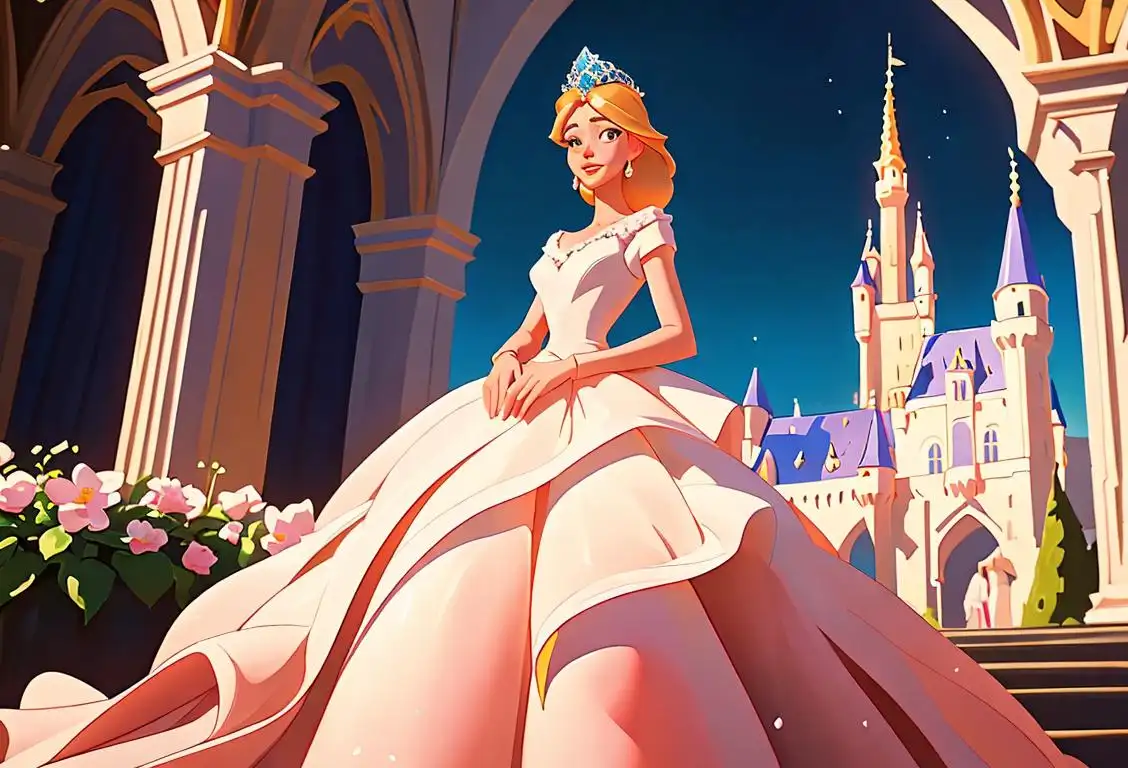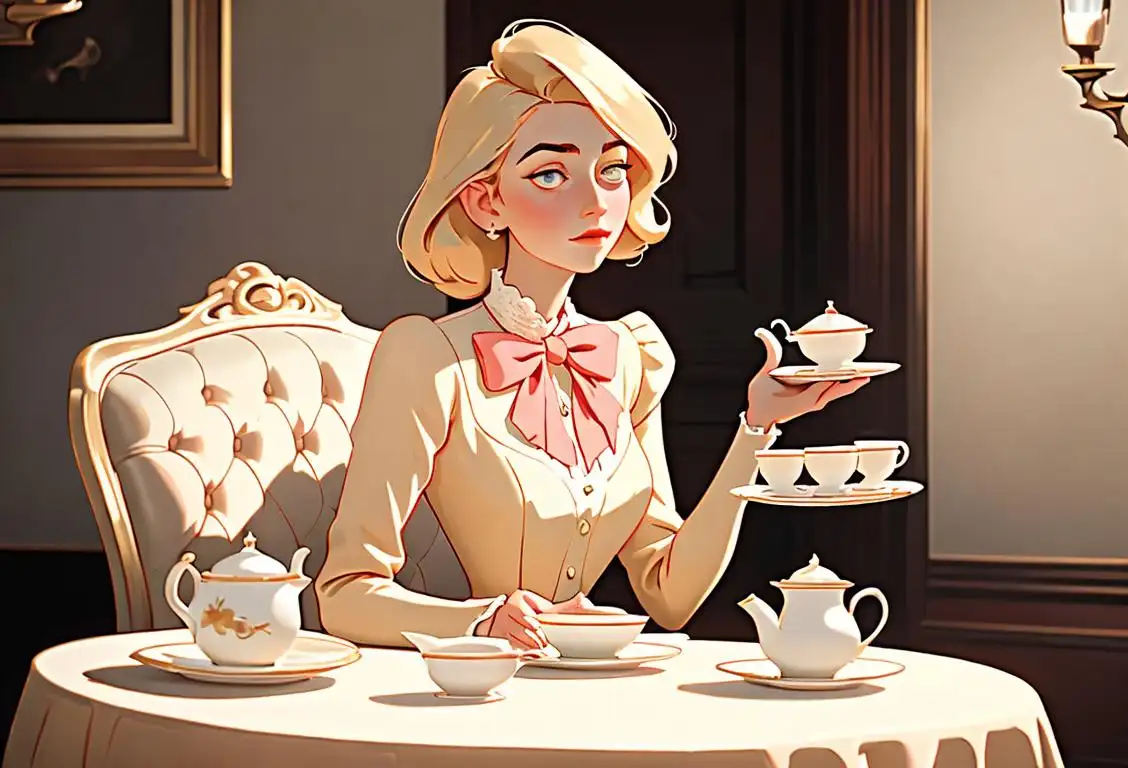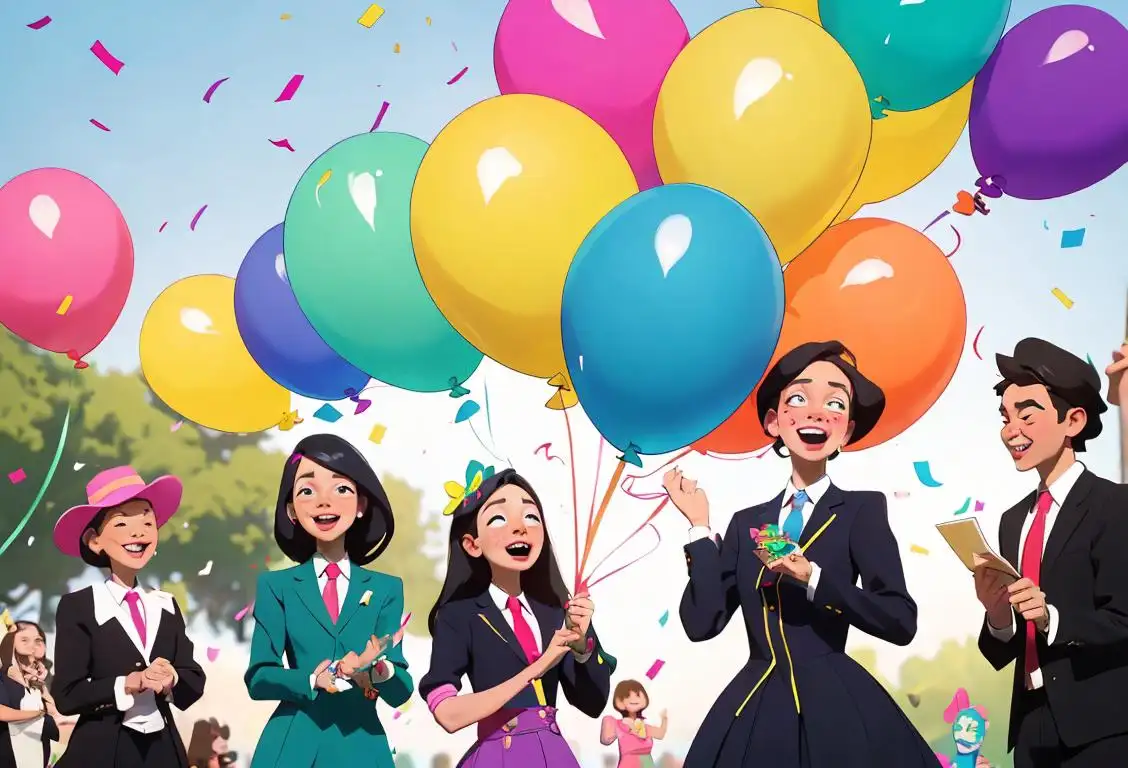National Princess Day

Who said being a princess was only for kids? If your 'dibs on the tiara' phase never really ended, or if the cinematic charm of Cinderella still twinkles in your heart, then hold your tiny, glittering glass slippers! November 18th is National Princess Day and, yes, it's made for dreamers like you.
When is Princess Day?
It's national princess day on the 18th November.
A Glimpse Into the History
National Princess Day graced our calendars not too long ago, but oh boy, did it make a grand entrance! Based on our tech-tastic tracking systems, we've detected 3831 mentions of the day online, with the most mentions popping up on November 18th, 2019. While it's unclear who officially started the tradition, one thing's for sure: this day has turned big-kid-dreaming into an all-out, sparkly spectacle.
The Royal Celebration
So, how does one celebrate National Princess Day? Any way that makes you feel like royalty! Whether it's wearing your favorite crown, sipping tea in an elegant gown, watching classic princess movies or spreading kindness throughout your kingdom, this day is all about embracing your inner princess and her good deeds.
Why the Fuss About Princesses?
Being a princess isn't just about the glitz and glamour. It's about inspiring others, standing for values, and making the world a better place. Princess stories often teach us about courage, kindness, and the power of believing in our dreams. And we could all do with a bit more of that, couldn't we?
In a Nutshell
Regardless of who or where you are, National Princess Day is a unique chance to let your hair down (or let it climb a tower, if you're Rapunzel!). So, why not join the festivities and feel like royalty for a day? After all, everyone has a bit of princess magic within them!
History behind the term 'Princess'
11th century
Etymology in Medieval Europe
The term 'princess' originates from the Latin word 'princeps', which means 'first' or 'chief'. In the 11th century, during the Medieval period in Europe, the term 'princess' started to be used to refer to the daughter of a king or queen. It was related to the concept of primogeniture, where the first-born child, usually a son, would inherit the throne. However, the title of 'princess' was also given to the daughters of noble families and sometimes even to the wife of a prince.
12th century
The Rise of Fairy Tales
In the 12th century, fairy tales started to gain popularity in Europe, particularly in France. These tales often featured princesses as main characters. The fairy tales portrayed princesses as beautiful, kind-hearted, and often in need of rescue. This helped solidify the image of a princess as a royal and virtuous figure in the minds of people.
16th century
Influence of Shakespeare
During the 16th century, the works of William Shakespeare greatly influenced the perception of princesses. His plays, such as 'Hamlet' and 'Romeo and Juliet', portrayed princesses as complex and multi-dimensional characters with their own desires, ambitions, and intelligence. Shakespeare's depiction of princesses broke away from the traditional damsel in distress trope and added depth to the perception of a princess's role.
19th century
The Victorian Era
The 19th century, known as the Victorian era, shaped the modern idea of a princess. Queen Victoria, who ruled the British Empire for over 63 years, was seen as the epitome of a virtuous and powerful queen. Her influence on fashion, etiquette, and family values made the idealized image of a princess more prominent. Princesses during this era were expected to possess grace, elegance, and moral values, often representing the ideals of purity and innocence.
20th century
Modern Representation
In the 20th century, the concept of a princess evolved further, influenced by popular culture and individual worldly achievements. The rise of film and media allowed for the portrayal of princesses that were strong, independent, and capable. Princess Diana, for example, gained global attention and admiration for her charity work and modern approach to royalty. This shift in perception expanded the notion of a princess to include qualities beyond royalty and created role models for young girls around the world.
Did you know?
Did you know that Cinderella, one of the most beloved princesses of all time, has been reimagined in over 500 versions across different cultures globally? Now, that's one truly universal royalty!Tagged
fun celebration kindness royalty princess glamour fairy_talesFirst identified
3rd March 2016Most mentioned on
18th November 2019Total mentions
3831Other days
Princess Day
Charlotte Day
Abby Day
Fitness Day
Vodka Day
Friend Day
Video Game Day
Love Your Pet Day
Bestfriends Day
Heroes Day








